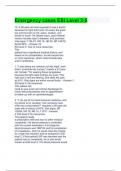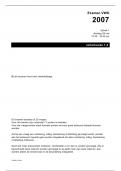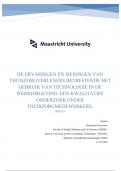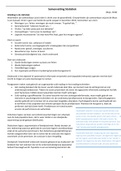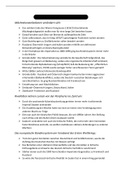Adverse Possession
Introduction
This is when a third party takes possession of land, but is not the rightful owner and without
their consent. Normally, it is an empty building that a third party moves into without the
consent and they also tend to not know they have moved in. If the land is subject to a
tenancy, for example, the person entitled to it is the tenant (or anyone acting with their
authority). If it is not leased out, the person entitled to it would be the holder(s) of the legal
fee simple (or, again, anyone acting with their authority).
When we think about squatting, we tend to have a set view of who AP are. Squatters are not
necessarily all the types of APs. Should there be an obligation to use land productively, as
opposed to sleeping on their right? Recently, there have been changes that show that
possession isn’t 9/10ths of the law anymore. Quite often AP does not occur when there are
groups of people move into a building. It normally occurs that someone mistakes a bit of
land for their own.
There is a huge array of situations in which adverse possession can occur. For simplicity, we
will only look at AP by a third party against the person that holds the fee simple and the
effect of the Land Registration Act 2002.
Adverse possession is known as the ‘root of title’. The beginning of the title is possession. If
you own land with the fee simple, if an AP comes onto the land on a later date, they will also
acquire a new fee simple – it occurs later but run in parallel with it. It will differ if the land is
registered/unregistered.
i. if the land is unregistered, there will be the (unregistered) legal fee simple of the
dispossessed owner, and the newly created (also unregistered) fee simple of the
adverse possessor.
ii. if the land is registered, there will be the registered legal fee simple of the registered
proprietor, and the newly arisen (and unregistered) legal fee simple of the adverse
possessor.
By the same logic, there can even be three or more legal fee simple estates in the same land
if there have been consecutive adverse possessors. For example, if A (the ‘owner’) is
dispossessed by B, who is turn dispossessed by C, then A, B and C will each enjoy a legal fee
simple in the relevant land.
Relativity of title
In principle, any fee simple holder who is dispossessed by a squatter can bring an action to
recover possession from them. Even though both parties have a fee simple, the general rule
is that the fee simple which existed first is the better one. 1 Even though there is an
additional fee simple, the one that arises first can evict the squatter. Once you evict them
the fee simple stops running. This is why most of the time, this is not an issue.
1
By the same logic, any squatter will likewise have a better title than a later squatter.
Introduction
This is when a third party takes possession of land, but is not the rightful owner and without
their consent. Normally, it is an empty building that a third party moves into without the
consent and they also tend to not know they have moved in. If the land is subject to a
tenancy, for example, the person entitled to it is the tenant (or anyone acting with their
authority). If it is not leased out, the person entitled to it would be the holder(s) of the legal
fee simple (or, again, anyone acting with their authority).
When we think about squatting, we tend to have a set view of who AP are. Squatters are not
necessarily all the types of APs. Should there be an obligation to use land productively, as
opposed to sleeping on their right? Recently, there have been changes that show that
possession isn’t 9/10ths of the law anymore. Quite often AP does not occur when there are
groups of people move into a building. It normally occurs that someone mistakes a bit of
land for their own.
There is a huge array of situations in which adverse possession can occur. For simplicity, we
will only look at AP by a third party against the person that holds the fee simple and the
effect of the Land Registration Act 2002.
Adverse possession is known as the ‘root of title’. The beginning of the title is possession. If
you own land with the fee simple, if an AP comes onto the land on a later date, they will also
acquire a new fee simple – it occurs later but run in parallel with it. It will differ if the land is
registered/unregistered.
i. if the land is unregistered, there will be the (unregistered) legal fee simple of the
dispossessed owner, and the newly created (also unregistered) fee simple of the
adverse possessor.
ii. if the land is registered, there will be the registered legal fee simple of the registered
proprietor, and the newly arisen (and unregistered) legal fee simple of the adverse
possessor.
By the same logic, there can even be three or more legal fee simple estates in the same land
if there have been consecutive adverse possessors. For example, if A (the ‘owner’) is
dispossessed by B, who is turn dispossessed by C, then A, B and C will each enjoy a legal fee
simple in the relevant land.
Relativity of title
In principle, any fee simple holder who is dispossessed by a squatter can bring an action to
recover possession from them. Even though both parties have a fee simple, the general rule
is that the fee simple which existed first is the better one. 1 Even though there is an
additional fee simple, the one that arises first can evict the squatter. Once you evict them
the fee simple stops running. This is why most of the time, this is not an issue.
1
By the same logic, any squatter will likewise have a better title than a later squatter.

